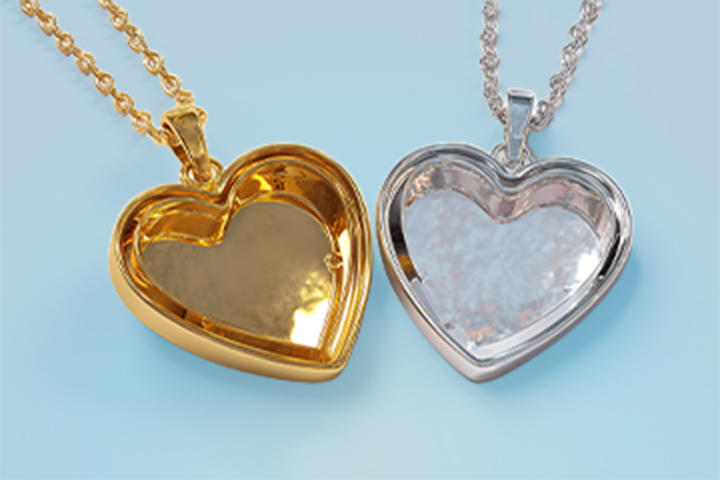7 Questions and Answers about gifting shares

Keytrade Bank
keytradebank.be
March 04, 2022
(updated August 29, 2022)
6 minutes to read
1. Why give away shares?
You’re comfortably settled, maybe you would like to give a friend or family member a helping hand, or you want to avoid your heirs paying (so much) inheritance tax later on. There can be various reasons for giving away part or all of an investment portfolio.
The simplest way to do it is to just sell your investments and then give away the proceeds. However, it is worth considering not selling your investments and instead giving someone the shares or other assets (bonds, investment funds, etc.) as a gift. It can be an interesting way to teach them about investing and to help them build up their own portfolio.
In addition, the potential long-term return on investment is higher than on savings. Especially if the person to whom you are giving them does not need the cash immediately, then giving them (some of) your investment portfolio may be more attractive than giving them cash.
In this article, we will look only at giving away investments that you can trade on a stock exchange; not at shares in a family company.
2. Who can you gift shares to?
In principle, you can donate to anyone you like: your children, your parents, a distant nephew, a charity, your neighbour, the Belgian government, etc. However, it’s better not to just rush ahead and do this. Both your children, if you have any, and any marriage partner, have rights that you must take into account. Suppose you have three children, and you donate a substantial package of shares to one of them, then the two other children are entitled to claim their share when your estate is being distributed.
Especially when it involves large sums of money, or when the shares you want to gift make up a substantial percentage of your assets, it is better for you to call on the assistance of a notary or some other expert in gift tax. This is also the case if you wish to make a gift to a minor, or if you wish to attach conditions to the gift.
Donating shares to a minor: what is the situation?
Minors are considered "incompetent" to accept a gift. If you give investments to a minor, the legal representative of the minor has to accept the gift. Ascending relatives (parents, grandparents) of the minor can accept the gift without needing an authorisation from a justice of the peace.
If you as a parent donate to your own minor child, you cannot at the same time accept the gift on behalf of the minor. The other parent can do this if you are giving assets you hold in your own name. If the other parent is unable or unwilling to accept the gift, one of the grandparents may accept the gift instead.
3. Giving away investments: how does it work?
This can be done in one of two ways:
- by bank transferYou transfer the securities from your investment account to an investment account in the name of the beneficiary. You must draw up an accompanying document (supplementary agreement or pacte adjoint) for the transaction. This document confirms that the transaction is intended to be a gift. You must send the document by registered post and the beneficiary must keep the envelope unopened. If there are ever any problems, the letter can be opened in the presence of the tax authorities.You do not have to register a bank transfer (but you can do so). The benefit? If you do not register the gift, you will not pay any gift tax. The disadvantage? If you die within 3 years of the gift (or 5 years in Wallonia), the beneficiary will pay inheritance tax instead. Depending on who you are giving to, the inheritance tax may be considerable, and (much) higher than gift tax.
It is therefore best to think carefully whether to:
- Pay gift tax and avoid the risk of the recipient having to pay inheritance tax, or …
- To not pay gift tax and run the risk of the beneficiary paying inheritance tax.
- Check and compare the rates for gift tax and inheritance tax in the Flemish Region
- Check and compare the rates for gift tax and inheritance tax in the Brussels-Capital Region
- Check and compare the rates for gift tax and inheritance tax in the Wallonia Region
- Through a notarised deedNot all investments can be gifted via a bank transfer. This applies, for example, to term deposit accounts, unit-linked life insurance products, with and without guaranteed returns. A notarial deed of gift is also required if you wish to attach terms and conditions to the gift, such as reserving the usufruct (see below).If you opt for a notarial deed, gift tax is always payable. The major advantage is that the beneficiary will not pay inheritance tax on the gift (see above for the different rates in the different regions).
4. Share prices can fluctuate rapidly. What value is used to calculate the gift tax?
As a general rule, in the case of investments listed in an E.E.R Member State, gift tax is levied on the market value (closing price) on the first day of the month in which the gift is made. If there is no listed price on that day, the market price on the next day on which a price is listed will apply.
5. Can I gift the shares, but still keep collecting the dividends?
Yes, you can link all kinds of different conditions to a gift. If you wish to do so, it is highly recommended that you seek personal advice from your notary or another estate planning expert. They can help you draft the wording correctly. For some procedures, you are always required to make the gift using a notarial deed.
A common practice is to gift the investments while reserving the beneficial ownership. This means that you will be entitled to the dividends and other payments on your investments. If the price of the investments rises, the capital gains will go to the person to whom you gifted the investments.
Tip: The deed of gift may state that the portfolio is being gifted "universally". This means that you can continue to manage the portfolio and buy and sell investments, etc. On your death, the usufruct ceases to exist and the beneficiary becomes the full owner, without any inheritance tax being due.
6. What if you die and have not gifted or donated anything?
If you have not settled anything (perhaps not even a will or third-party beneficiary), then the standard inheritance law will apply. So if you want your investments to go to the "right" person, you need to take action.
7. How does the actual transfer of shares work in practice? And what does it cost?
Gifting money is relatively simple. Subject to compliance with a number of rules (see, among other things, the pacte adjoint or supplementary agreement), you simply transfer the amount from your own current account to that of the beneficiary. However, if you take a look at your investment account, you will notice that there is no "button" to transfer shares from your custody account to another custody account. You need to ask your bank to do it. Unlike the transfer of money, it may take anything from a few days to a few weeks for the investments to appear on the beneficiary’s custody account.
Transferring securities is not free of charge. The fees for the transfer of securities will vary from one bank to another. You usually pay a fee per line.


